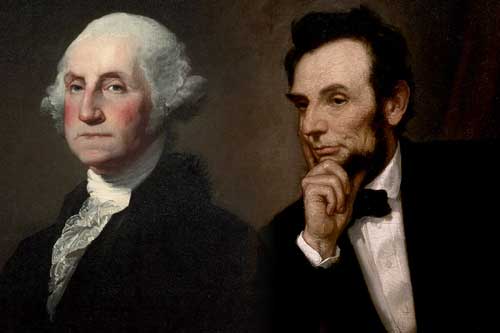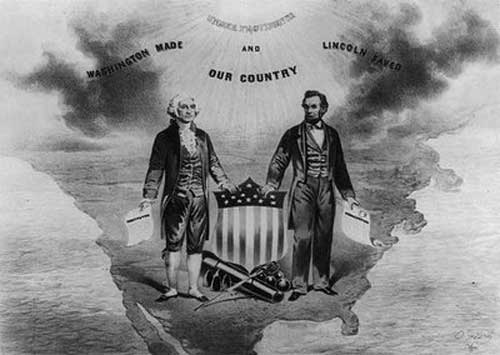
It used to be the Washington’s Birthday holiday (and still is in at least a few places). Now, Presidents’ Day is the official, national standard.
Some traditionalists no doubt are grumbling, as traditionalists tend to do.
There are also at least a few others of us, who are focused on the future and innovation rather than history per se, who are restive as well.
Who Are We Serving, Who Are We Honoring?
Honoring “the presidency” or honoring “all presidents” suggests, for example, that our recent presidents, of various political alignments, are to be regarded on a par with Washington and Lincoln.
That is to say, it does not honor the unique contributions of those leaders whom we acknowledge as the greatest of all, for all time.
It’s also in line with a self-regarding spirit coursing through our time, that attempts to minimize the contributions of the great, even of the exceptional. Rather than acknowledge greatness, many search for the failings of acknowledged leaders and exemplars, suggesting or even declaring that they are not worthy of recognition. Perhaps that makes some among us less uncomfortable with the enduring challenges posed by the examples of the greatest American leaders. They are of us, yet they have transcended us.
Heroism
Rarely does one hear our contemporary political leaders being held to the standards of Washington and Lincoln. It’s more common to hear people attempt to hold Washington and Lincoln to the rather lower standards of our contemporaries.
Insidiously and pridefully, some people tear them down for not being thoroughly contemporary and familiar in our eyes. Surely it is foolish to think oneself superior for seeing things that anyone can see now, but that our ancestors could not. It takes a mere glimpse into our own future to comprehend that we ourselves would not wish to be evaluated in such a way one hundred years hence.
Such a point of view overlooks that the ideals of our founders and other historic leaders, however imperfectly achieved, have made our own advances possible. Surely among our first duties is to recognize those ideals, be thankful for their stewardship, and to pass them along to those coming after us.
There may also be confusion from the rise of social history in the past generation. In identifying and celebrating the achievements of ordinary people, social history is rectifying the error perpetuated by those who, in the tradition of Thomas Carlyle, see most of us as mere extras in a world where a tiny number of “great men” determine events. As recounted in Serve to Lead, the “great man” approach is ultimately inaccurate and unjust. It also distorts what leadership is and can be.
Surely, from our remove, we can recognize that there have been great leaders at the same time as we recognize that many, many more people have made contributions than was generally celebrated or recognized in the past. At the very least we can join Theodore Roosevelt in the view that in our republican democracy, great leaders emerge amid a national character that is reflective of the values in action of the American people as a whole.
Why not incorporate the insights of social history to celebrate more of our people? It is not necessary to denigrate the accomplishments of, say, Washington and Lincoln, when we recognize and honor the many accomplishments of ordinary people. It’s not either/or, it’s both/and.

An irony: our greatest leaders would themselves be the first to recognize those many accomplishments of others throughout society. To view them in opposition is to maintain the least defensible aspect of the “great man” theory of the nineteenth century.
Every American today can justly take pride in our various ancestors’ many contributions.
Washington and Lincoln Each Merit a Day of Reflection
—and Action
On Presidents’ Day, I’ll be celebrating George Washington. So, too I celebrate Abraham Lincoln’s leadership project, as well as those of Theodore Roosevelt, Franklin Roosevelt, Dwight Eisenhower, John Kennedy, Ronald Reagan, and other consequential presidents. They each dedicated their lives to creating the world in which we live. We’re living, however incompletely, the visions they helped create, communicate, actualize, and sustain.
In a time when, more than ever before, everybody can lead because everybody can serve—this is an act of spiritual piety and actionable inspiration.
Washington and Lincoln and Presidents Day
